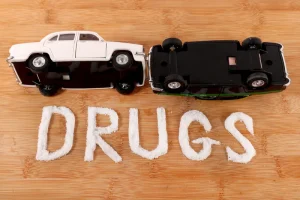
This is a difficult way of life to break out of, but we help our patients do it. If you or someone you know is struggling with a drug or alcohol problem, we offer intervention planning services that can help the individual realize their problem and their need for care. You may also experience cognitive dissonance when you have situations cognitive dissonance addiction where friends, family members or coworkers act a certain way that don’t align with your beliefs. You may be pressured into allowing those actions to continue or participate in those actions yourself — and that can leave you with some significant discomfort, so you end up questioning exactly how you should feel about the situation.

Products and services

President Biden’s debate performance was concerning, but replacing him may be difficult due to some strong psychological biases. Our purpose is to help people everywhere find great counselors and psychologists. I’ve had experience with recovery since 1996 and began working in the field in early 2004. My goal is for everyone https://ecosoberhouse.com/ to enjoy coming to work, and for their days to be as productive as possible toward the end of helping people put their lives back together. John’s strengths are being able to work on almost any area of the Elevate program. I have been trained throughout the years in many departments in case anything comes up.

Social Skills Training

Drugs of abuse hyperactivate this system, triggering abrupt and large increases in NAc dopamine signaling, producing intense sensations that motivate additional drug taking, and promoting the formation of maladaptive drug-stimulus associations (Feltenstein and See, 2008). Cognitive dissonance can often have a powerful influence on our behaviors and actions. It doesn’t just influence how you feel; it also motivates you to take action to reduce feelings of discomfort. It provides an introduction to the theory and covers the topics of cognitive dissonance following decisions, the effects of forced compliance, the impacts of voluntary and involuntary exposure to information, and the role of social support. Cognitive dissonance is the uncomfortable feeling that can occur when you have conflicting beliefs, values, or behaviors. An individual progresses through various stages of changes and the movement is influenced by several factors.
- This is when the negatives of the addiction, including guilt and shame, can dominate the decisions they make.
- Cognitive dissonance leads to the motivation to reduce the dissonance (Festinger, 1957).
- Or you might focus on the negative features of the item that you didn’t choose to convince yourself that your decision was the right one.
Conflict of Interest
- Another study documented memory deficits in 10-year-old children who had been exposed prenatally to alcohol or marijuana (Richardson et al., 2002).
- Several studies have investigated the relationship between cognitive dissonance and different outcomes such as attitude change, behavior change, and consumer decision making [96,97].
- Cognitive dissonance can have many different causes, including addiction, a desire to meet the expectations of others, fear of change, and trauma.
- Imagine confronting a sunbather with the information that excessive sun exposure is the leading cause of skin cancer.
- The catch, however, was that some participants were paid $20 to convince another participant that the tasks were fun, while others were only paid $1.
Festinger and Carlsmith (1959) conducted one of the first studies examining cognitive dissonance. We may perceive dissonance when we engage in a new behavior (e.g., when we decline an invitation to an event we usually attend in order to protect our leisure time). While this can feel uncomfortable at first, it’s helpful to reflect on the reasons behind our behavior. This can be a difficult and uncomfortable process and involves getting additional information.
COGNITIVE EFFECTS OF ACUTE DRUG ADMINISTRATION
A Theory of Cognitive Dissonance – Leon Festinger
Dealing With Dissonance in Therapy: 4 Tips
- Theoretically, dissonance may contribute to a variety of changes in behavior or beliefs.
- Festinger suggested that people strive to maintain a state of internal consistency.
- The other half, however, given insufficient justification (only $1) for their behavior, experienced dissonance between the knowledge that the task was boring and the reality that they were misleading a fellow participant into believing it was interesting.
- Skill sets include counseling/clinical competency, revenue generation strategies, strong written/oral communication skills, insurance billing/contracting knowledge and general empathy for others struggling with substance use disorders.

